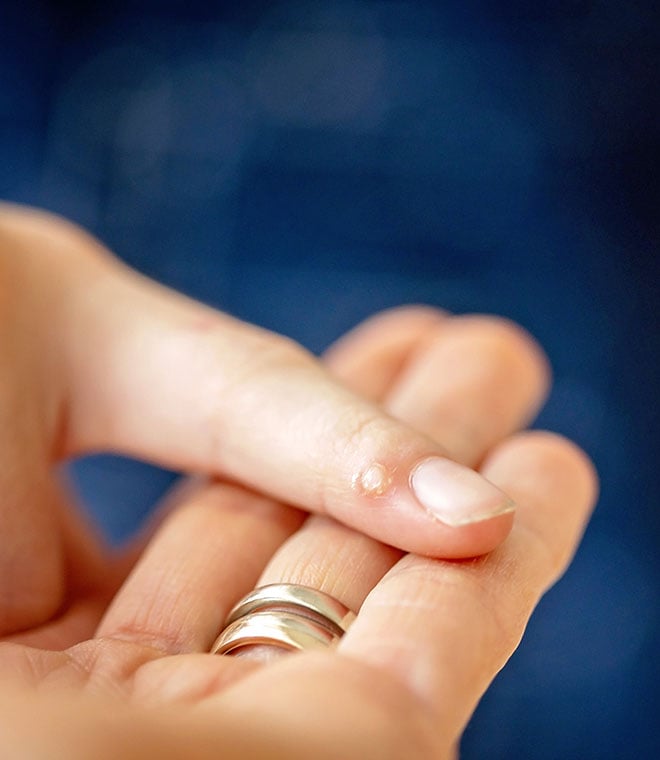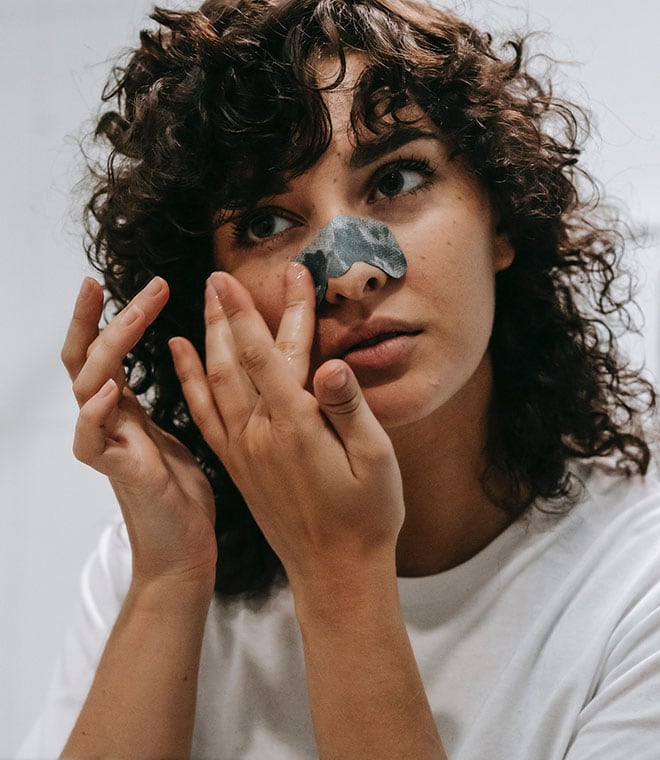Health
What is psoriasis?
By Anna H. Chacon, MD, Fellow of the American Academy of Dermatology Jun 07, 2023 • 11 min
Psoriasis is a chronic skin condition that affects roughly 3% of the U.S. population. It can develop anywhere on the body, from the eyelids and ears to the back and trunk. There are several types of psoriasis, each with its own signs and symptoms.
What is plaque psoriasis?
The most common form of psoriasis, plaque psoriasis causes raised areas of thickened skin to form on the body. These plaques often look like scaly, silvery spots, and they occur in a symmetrical shape. Although you can develop it anywhere from your eyelids to your feet, this type of psoriasis rash is most likely to appear on the trunk, arms, legs, elbows and knees.
What is scalp psoriasis?
When plaque psoriasis occurs on the scalp, it’s referred to as scalp psoriasis. This condition causes scaly plaques to develop along the hairline and on the scalp. Over-the-counter psoriasis shampoo or prescription-strength psoriasis shampoo and medicine applied to the scalp are the most common treatments for this type of psoriasis.
What is the difference between scalp psoriasis vs dandruff?
Dandruff and scalp psoriasis are two different skin conditions that affect the scalp and can cause flaky skin. The biggest difference is that dandruff is unlikely to cause raised patches of thickened skin the way that scalp psoriasis does. Also, dandruff flakes tend to be yellow or white rather than silvery.
If you struggle to determine whether your symptoms are from psoriasis or dandruff, your healthcare provider should be able to differentiate between the two with a simple physical examination.
What is nail psoriasis?
Psoriasis can affect the fingernails and toenails as well as the skin. Symptoms of nail psoriasis include:
- Dents or pits in the nails
- Rough nails
- Crumbling nails
- Brown, white or yellow discoloration
- Nails lifting away from the nail bed, causing areas to detach
Nail psoriasis often occurs with plaque psoriasis. In fact, about half of all people with plaque psoriasis will develop symptoms affecting their nails at some point.
What is guttate psoriasis?
When psoriasis takes the form of tiny, scaly bumps on the skin, healthcare providers generally refer to it as guttate psoriasis. These bumps often appear suddenly and persist for a few weeks or months before disappearing on their own. The psoriasis rashes are usually pink or pinkish-orange in color.
What is inverse psoriasis?
Psoriasis that develops in places where skin touches skin is known as inverse psoriasis. It looks like smooth, red patches of thickened skin and most often develops under the arms, beneath the breasts and around the genitals. Psoriasis can also occur on the penis.
The appearance and location of inverse psoriasis can make it easy to mistake for chafing. However, inverse psoriasis patches usually persist for long periods of time if they’re not treated.
What is pustular psoriasis?
Most often affecting the feet, hands and fingers, pustular psoriasis is characterized by white, pus-filled bumps accompanied by thickened, swollen skin. As the bumps dry, they usually take on a brownish color.
What is erythrodermic psoriasis?
When psoriasis covers at least 90% of the body, healthcare providers call it erythrodermic psoriasis. This type of psoriasis is very rare and can cause other symptoms, such as chills, fever, rapid pulse and muscle weakness. Erythrodermic psoriasis is a serious, life-threatening condition that requires immediate medical attention.
What causes scalp psoriasis and other types of psoriasis?
No matter where it occurs on the body, psoriasis occurs when the immune system incorrectly identifies healthy skin cells as threats. To protect you, your immune system releases chemicals that trigger inflammation and speed up skin cell production. Because you begin to produce skin cells faster than your body can shed them, you develop thickened areas of tissue.
Psoriasis seems to have a genetic component. People with close relatives that have the condition are more likely to develop it themselves. Smoking and obesity are additional risk factors.
For many individuals with psoriasis, symptoms come and go, flaring up in response to triggers, such as changes in weather, skin injuries, stress, infections and certain medications.
Is psoriasis contagious?
Psoriasis is not contagious. Psoriasis occurs due to an immune system problem. It is not caused by a microorganism, such as bacteria or viruses.
How can psoriasis be treated?
The symptoms of psoriasis can be uncomfortable. Fortunately, there are psoriasis treatments available to help the skin recover and lower the likelihood of future flare-ups. Healthcare providers often recommend a combination of moisturizers and topical psoriasis medication, such as steroid creams, vitamin A creams or vitamin D3 ointments.
Which treatment is right for you will depend on the type of psoriasis you have, the location of the rash, the severity of the problem, your age and your overall health and medical history. Your healthcare provider can examine your skin, discuss your symptoms and work with you to develop the right treatment plan based on your needs.
Updated June 2023.
Sources:
- https://www.psoriasis.org/genitals/
- https://www.aad.org/public/diseases/psoriasis/what/contagious
- https://my.clevelandclinic.org/health/diseases/6866-psoriasis
- https://www.mayoclinic.org/diseases-conditions/psoriasis/symptoms-causes/syc-20355840
- https://www.niams.nih.gov/health-topics/psoriasis
- https://www.aad.org/public/diseases/psoriasis/what/causes
- https://www.psoriasis.org/psoriasis-on-the-face/
- https://www.aad.org/public/diseases/psoriasis/what/overview
- https://www.aad.org/public/diseases/psoriasis/what/symptoms
- https://www.psoriasis.org/advance/scalp-psoriasis-or-dandruff/
- https://www.aad.org/public/diseases/psoriasis/what/look-like
- https://www.aad.org/public/diseases/psoriasis/treatment/genitals/scalp-shampoo
- https://my.clevelandclinic.org/health/diseases/22852-inverse-psoriasis



